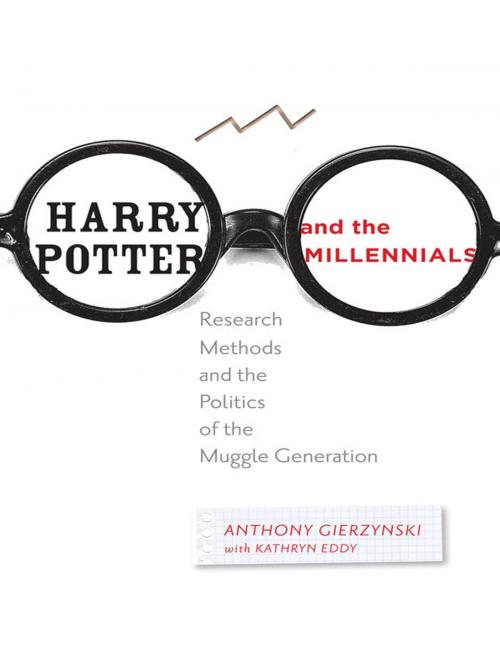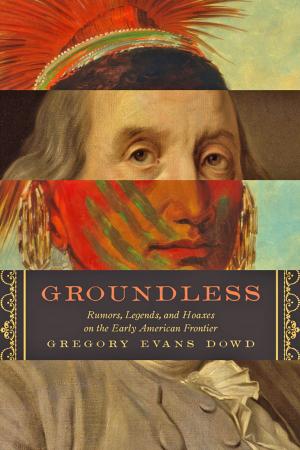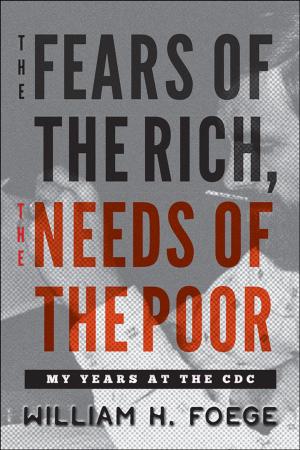Harry Potter and the Millennials
Research Methods and the Politics of the Muggle Generation
Nonfiction, Social & Cultural Studies, Social Science, Sociology, Political Science, Government| Author: | Anthony Gierzynski | ISBN: | 9781421410340 |
| Publisher: | Johns Hopkins University Press | Publication: | August 15, 2013 |
| Imprint: | Language: | English |
| Author: | Anthony Gierzynski |
| ISBN: | 9781421410340 |
| Publisher: | Johns Hopkins University Press |
| Publication: | August 15, 2013 |
| Imprint: | |
| Language: | English |
Without a doubt the Harry Potter series has had a powerful effect on the Millennial Generation. Millions of children grew up immersed in the world of the boy wizard—reading the books, dressing up in costume to attend midnight book release parties, watching the movies, and even creating and competing in Quidditch tournaments. Beyond what we know of the popularity of the series, however, nothing has been published on the question of the Harry Potter effect on the politics of its young readers—now voting adults.
Looking to engage his students in exploring the connections between political opinion and popular culture, Anthony Gierzynski conducted a national survey of more than 1,100 college students and examined these connections as well as Millennial politics. Harry Potter and the Millennials tells the fascinating story of how the team designed the study and gathered results, explains what conclusions can and cannot be drawn, and reveals the challenges social scientists face in studying political science, sociology, and mass communication.
Specifically, the evidence indicates that Harry Potter fans are more open to diversity and are more politically tolerant than nonfans; fans are also less authoritarian, less likely to support the use of deadly force or torture, more politically active, and more likely to have had a negative view of the Bush administration. Furthermore, these differences do not disappear when controlling for other important predictors of these perspectives, lending support to the argument that the series indeed had an independent effect on its audience. In this clear and cogent account, Gierzynski demonstrates how social scientists develop and design research questions and studies. An appendix of questions and resulting data, including graphs and diagrams, will appeal especially to instructors seeking to explain the nuances of political socialization.
Gierzynski’s captivating analysis of media’s impact on political views, combined with the enjoyable Potter story details, makes for an irresistible project that social scientists can use to work a little magic in their classrooms.
Without a doubt the Harry Potter series has had a powerful effect on the Millennial Generation. Millions of children grew up immersed in the world of the boy wizard—reading the books, dressing up in costume to attend midnight book release parties, watching the movies, and even creating and competing in Quidditch tournaments. Beyond what we know of the popularity of the series, however, nothing has been published on the question of the Harry Potter effect on the politics of its young readers—now voting adults.
Looking to engage his students in exploring the connections between political opinion and popular culture, Anthony Gierzynski conducted a national survey of more than 1,100 college students and examined these connections as well as Millennial politics. Harry Potter and the Millennials tells the fascinating story of how the team designed the study and gathered results, explains what conclusions can and cannot be drawn, and reveals the challenges social scientists face in studying political science, sociology, and mass communication.
Specifically, the evidence indicates that Harry Potter fans are more open to diversity and are more politically tolerant than nonfans; fans are also less authoritarian, less likely to support the use of deadly force or torture, more politically active, and more likely to have had a negative view of the Bush administration. Furthermore, these differences do not disappear when controlling for other important predictors of these perspectives, lending support to the argument that the series indeed had an independent effect on its audience. In this clear and cogent account, Gierzynski demonstrates how social scientists develop and design research questions and studies. An appendix of questions and resulting data, including graphs and diagrams, will appeal especially to instructors seeking to explain the nuances of political socialization.
Gierzynski’s captivating analysis of media’s impact on political views, combined with the enjoyable Potter story details, makes for an irresistible project that social scientists can use to work a little magic in their classrooms.















